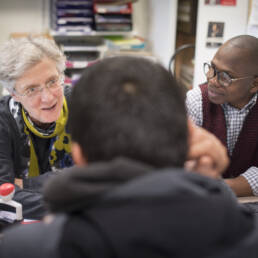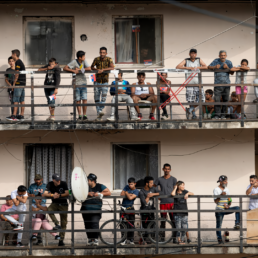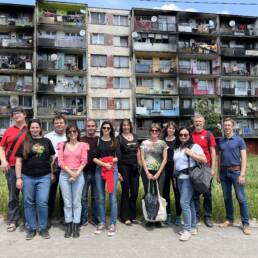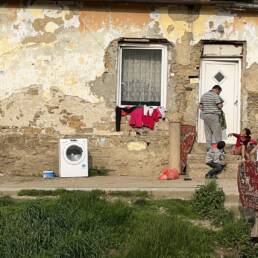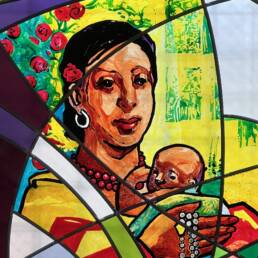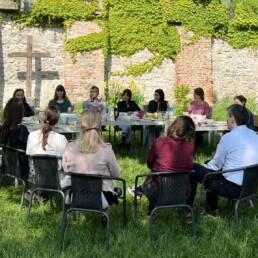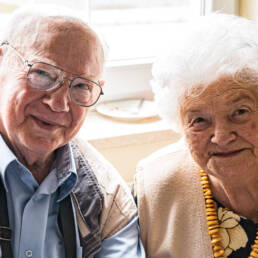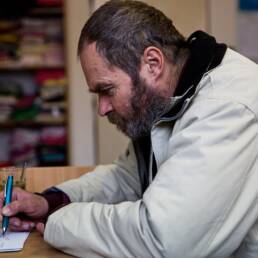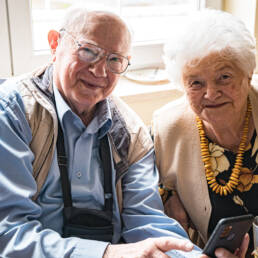Author
André Bonello
Head of Research and Advocacy Unit
Caritas Malta
In 2016 Caritas Malta carried out a detailed research to develop a Minimum Essential Budget for a Decent Living (MEBDL) in Malta.
The purpose was twofold:
- Firstly, to revise the minimum essential components of a basket of basic goods and services developed in a previous study in 2012;
- Secondly, to calculate the minimum essential budget for three low-income household types to achieve a decent living standard in Malta.
The budget was calculated for the following family types: a couple with two children below 14 years of age, a single parent with two children and an elderly couple. It is assumed that these family types are in a good health, use state services (transport, health, education), live in social housing and, thus, receive energy and water benefits, as well as benefit from the Fund for European Aid (FEAD) to the Most Deprived. The estimation was developed using a normative approach rather than a consensual perspective. The final composition of the budget includes: household goods, laundry, care and services, housing, food, clothing, personal care, health, education and leisure, and transport.
The MEBDL does not include alcoholic beverages or tobacco, because these are seen as unhealthy elements. The budget does not include insurances and private health services. MEBDL is also very restrictive in the dimensions of leisure, social relations and mobility, excluding items or activities such as eating out, pocket money, games, toys, gifts, a car, etc. However, some of these elements were calculated separately and added in the budget: a private car, eating out and private rented dwelling. The pricing was conducted using market prices (e.g. supermarket) for some of the items (e.g. medicines, food, clothing), but some other costs were estimated using the average consumer expenditure of the lowest income quartile of the 2008 Household Budgetary Survey and adjusting for inflation between 2011 and 2015.
The results show that the MEBDL is, per year:
- 446€ for a couple with 2 children;
- 766,45€ for lone parent and 2 children and;
- 527€ for an elderly couple.
The food basket represents the highest share of the total basket, between 45% and 54% depending on the family type. Due to limited data, the study could not determine the number of households earning less than the MEBDL. Nevertheless, the MEBDL should be seen as a minimum benchmark (the lowest acceptable, not a RBs) to guide social security policies to determine the adequacy of minimum income for specific households in Malta.
A separate exercise showed that households with dependent children subsisting on one National Minimum Wage, or on Social and Unemployment assistance or applicable benefits/allowances do not have an adequate income in relation to the established researched minimum essential baskets. In the case of households receiving a Guaranteed Minimum pension, the minimum essential basket does not allow for adequate social participation and does not consider additional expense, particularly medical, self-care and security expenses, which might be pertinent to this life stage.
Based on the minimum essential budgets computed and the local socio-economic context, 15 policy recommendations were put forward to the government. Four of which have turned out to leave a positive impact on vulnerable people in Malta. These are:
- Adopt the three minimum essential budgets as benchmarks to guide social security policies to determine adequacy of minimum income for specific households;
- Give further consideration to the particular circumstances of those who legitimately cannot work. This may require strengthening the social security benefits for people who earn less than the minimum essential budget for their household type;
- Slightly uplift the minimum wage for a period of three years. This increase would be in addition of the Cost of Living Adjustment (COLA);
- Ensure that entitlement for free medication through the public health system is reviewed to reflect a just and accessible system within a sustainable health care system. Due to the expected increase in longevity, consider adding certain medications or supplements which may be required by the elderly, such as supplements for osteoporosis.
These recommendations have been on the agenda for debate with the public and civil society for the past two years. The government of Malta has committed itself to take such studies seriously and urged other organisations that work closely with those in need to conduct similar studies in order to help the government have a better overview of how people can live adequately.
Establishing the minimum standards necessary to ensure the needs for living a decent life poses various challenges. Understandably, there may be misalignment between objectivity as seen by experts and researchers and the reality of real-life experiences of different households. In general, however, this study to establish the minimum essential baskets and budgets should be seen through a positive lens. A budget standard which is used alongside the current convention for measuring the risk of poverty and social exclusion threshold is potentially a very powerful tool, offering opportunities to compare, improve and deepen analysis of poverty, and to help further pave the way to ensure sustainable lifestyles and human dignity for all.
About the author
André Bonello manages the Diaconia Unit, which focuses on research and advocacy, reaching out to people in the community and identifying their needs, integrating elderly people to be independent and function in their community and involving young people between ages of 18 to 30 to develop their innovative ideas within Caritas Malta in order to create a sense of prevention from substance abuse, and liaising with Caritas Europa.

